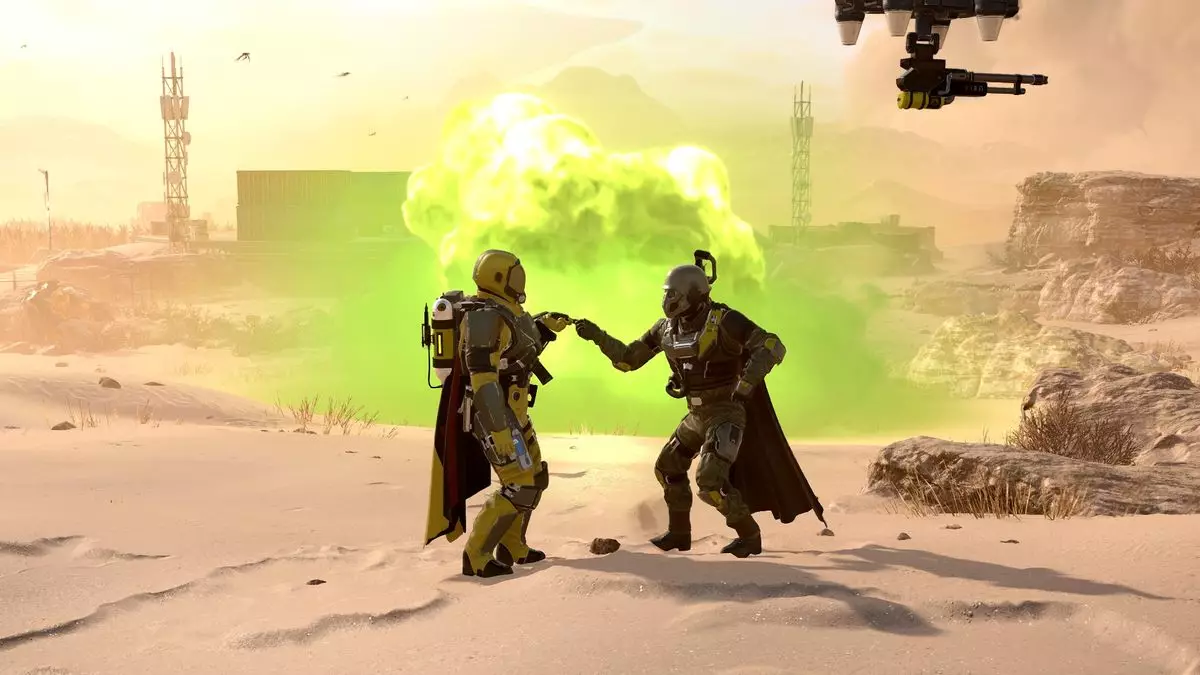In the ever-evolving realm of video game music, the landscape has often witnessed genres come and go, leaving composers grappling with their relevance. Recently, the journey of **Will Roget**, the composer behind the new sci-fi score for *Helldivers 2*, exemplifies this challenge. Roget faced a moment of reflection and uncertainty, considering abandoning orchestral compositions altogether due to perceived player fatigue and the daunting nature of producing large-scale orchestral works. His story resonates with anyone in the creative field who has been faced with the daunting question: Is my work still valued?
The narrative took a dramatic turn following the release of *Helldivers 2*, marked by an enthusiastic response from both critics and fans. Helldivers 2’s director, **Johan Pilestedt**, took to social media to express his disbelief that the game’s Original Soundtrack (OST) had not been recognized in major award circles. With a fervor that ignited conversations, he suggested that the score not only deserved accolades but also had become an integral part of his daily routine. His excitement underscores the impact of music in gaming, often serving as the emotional backbone of the entire experience.
Roget’s reflections on the reaction to his score shed light on a broader cultural discourse regarding orchestral music in the gaming industry. The unexpected surge in appreciation for his work, which he described as “thunderingly heroic,” has rejuvenated his passion for the orchestral genre, a sentiment that many composers might yearn for in a digital landscape rife with rapid changes.
What makes Roget’s story particularly compelling is the sense of community it unveils. The musician expressed profound gratitude to fans for not only enjoying the score but also for creatively engaging with it through music-react videos and covers. This collective enthusiasm showcases the power of music to forge connections between creators and their audiences, a dynamic that must be cultivated in an era where individual creativity can often feel isolated or underappreciated.
The overwhelming response was not just uplifting for Roget; it served as a broader commentary on the potential for orchestral music to reclaim its place in the gaming sphere. It challenges the notion that players are growing weary of traditional compositions. Roget’s realization that even an orchestral score could evoke such enthusiasm suggests that players still crave complex, rich, and emotive compositions that can elevate their gaming experiences.
As Will Roget stands at the pinnacle of recognition for his work on *Helldivers 2*, it becomes evident that orchestral music in video games is far from obsolete. With growing appreciation from communities and an influx of creative collaboration surrounding game soundtracks, the journey ahead appears bright for orchestral composers. Roget’s reawakening to orchestral music serves as a beacon of hope for artists willing to push boundaries and seek fresh avenues for their creations, solidifying the fact that music remains a vital component of the gaming experience. In a world increasingly dominated by rapidly changing trends, his story emphasizes the enduring power of a compelling score to resonate with players and reinvigorate a composer’s passion.

